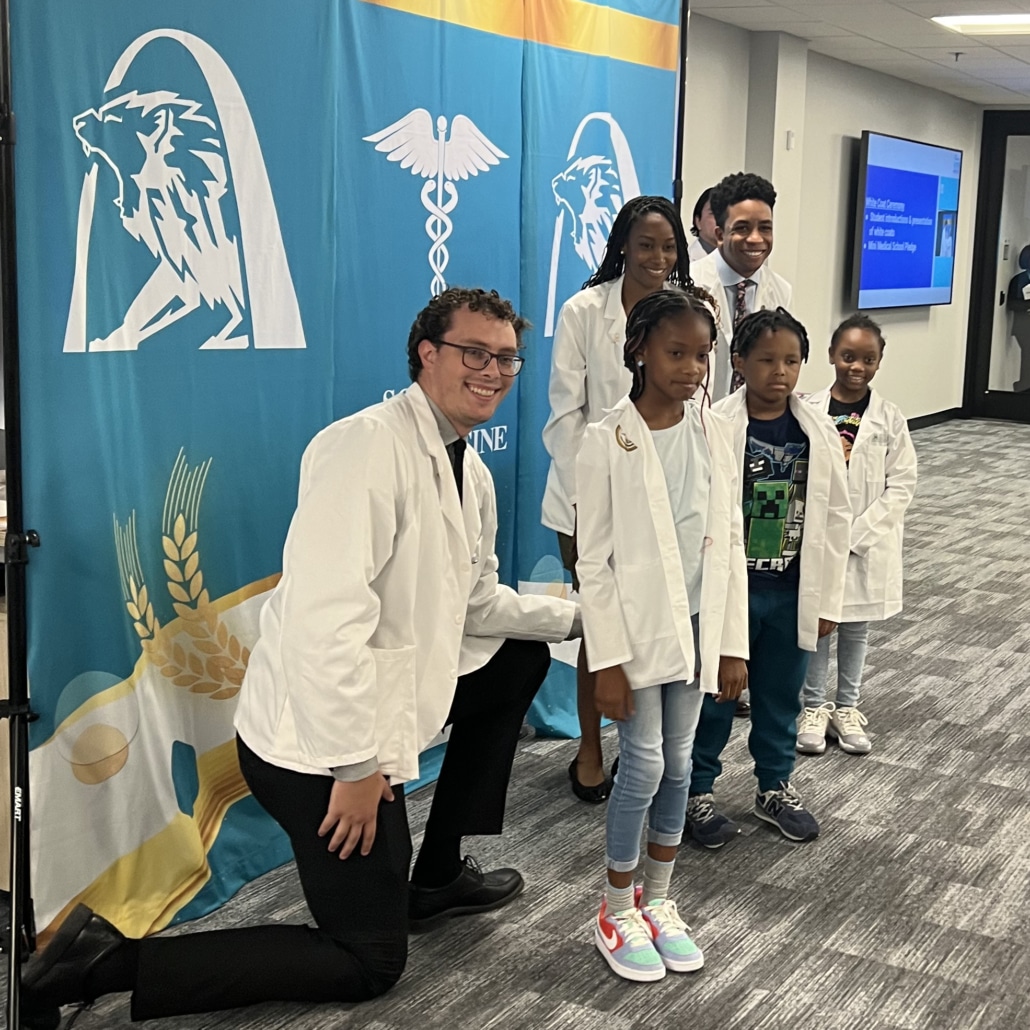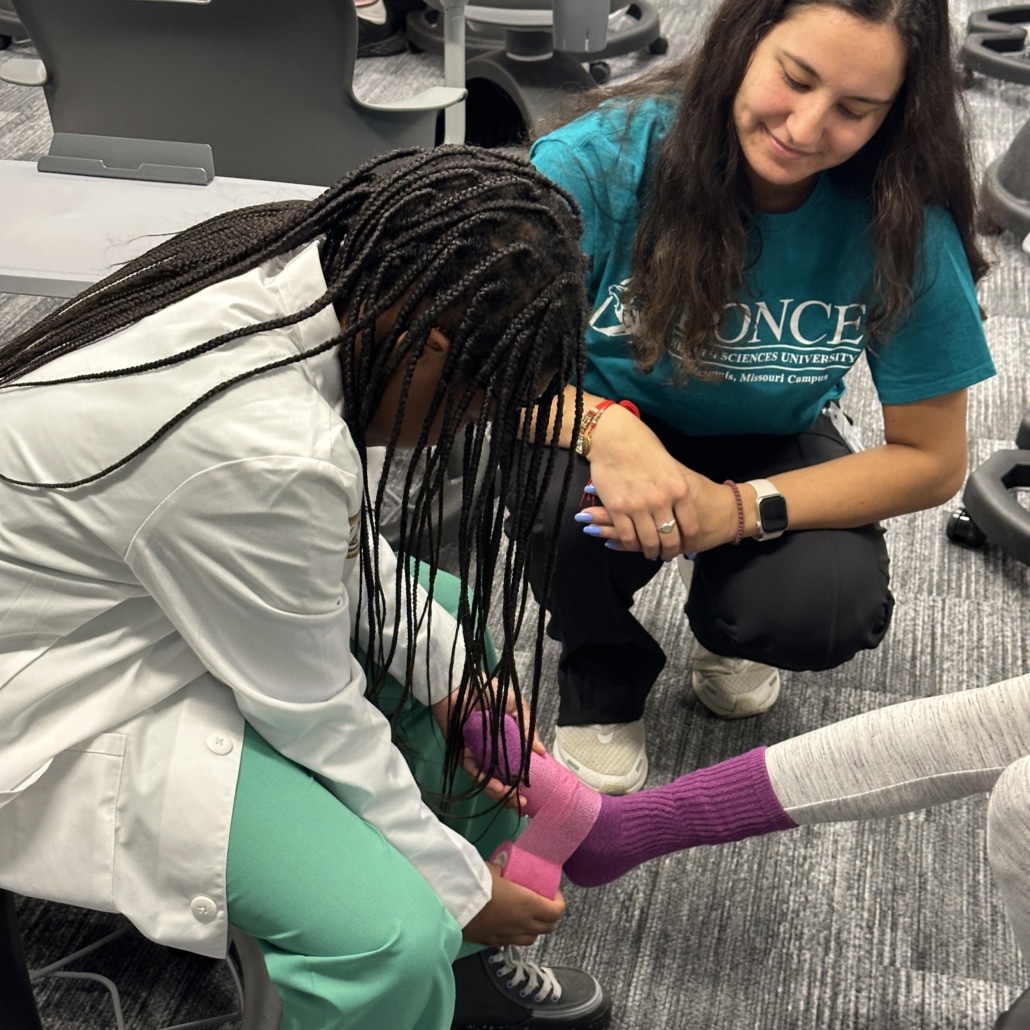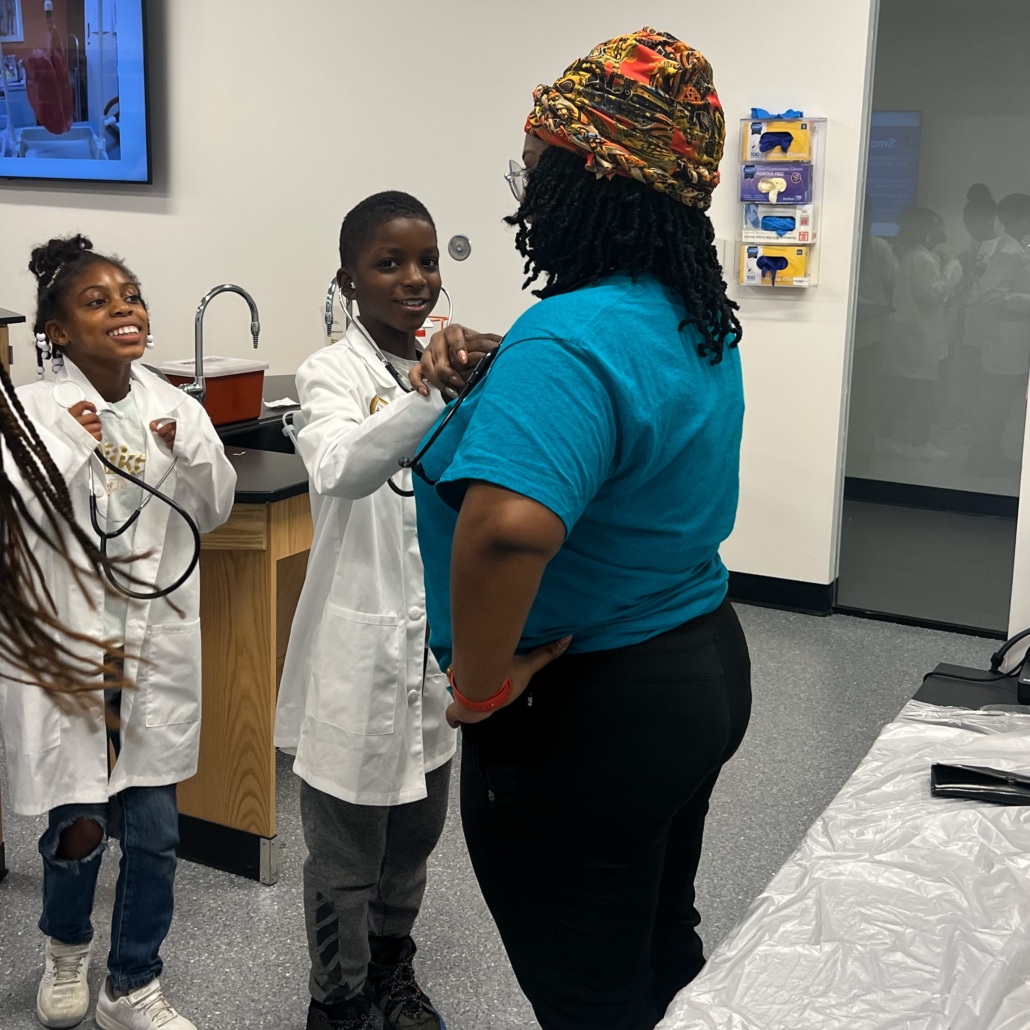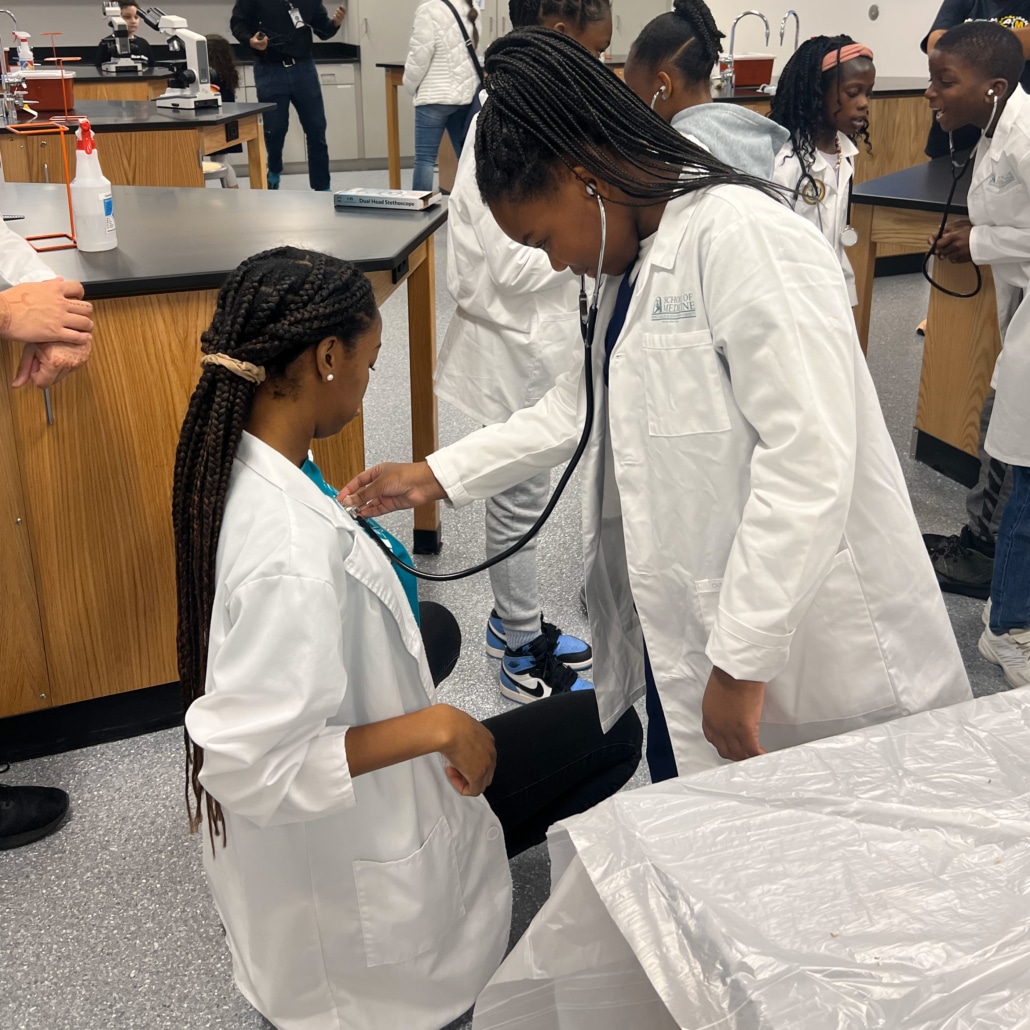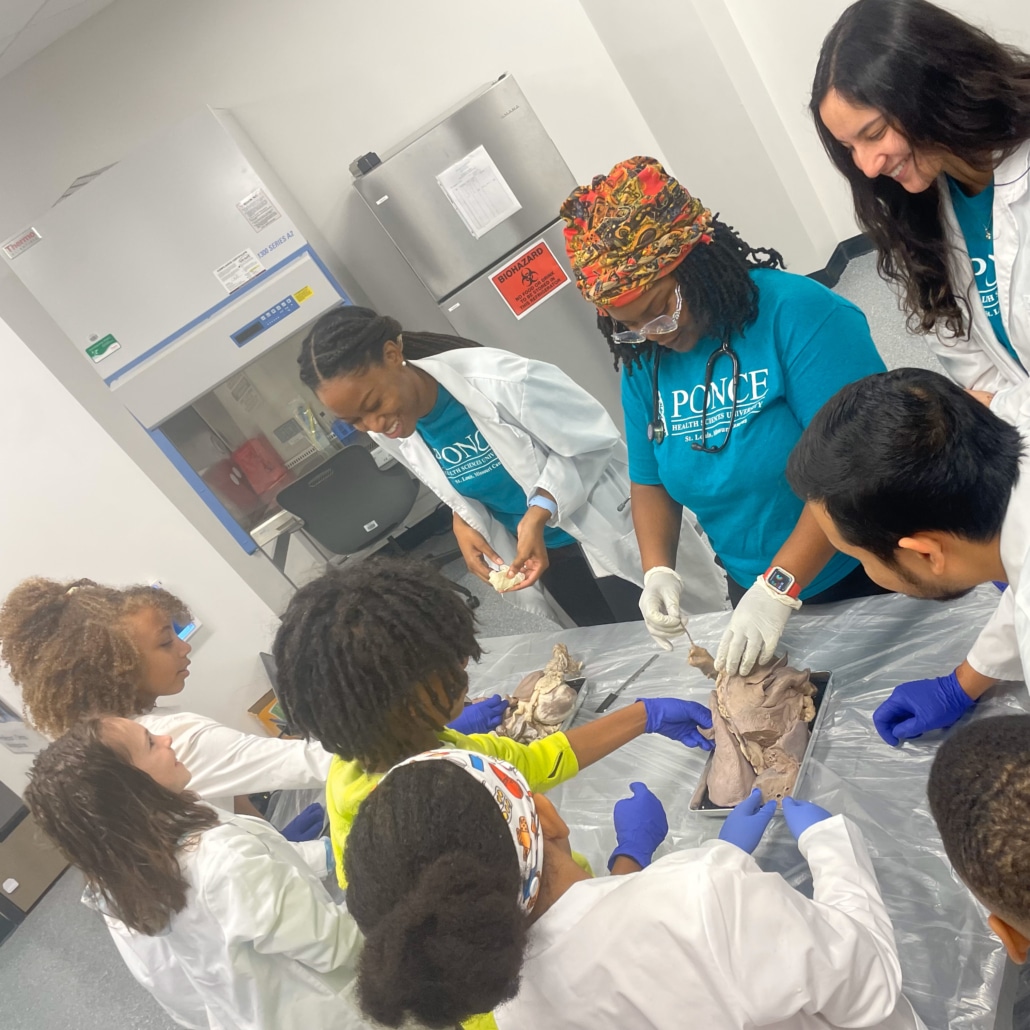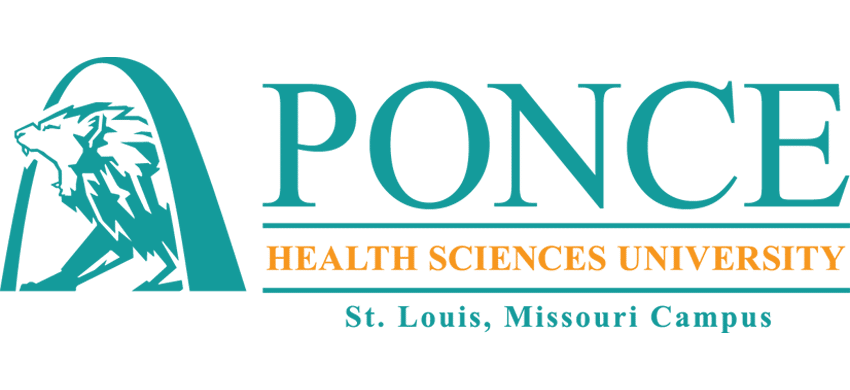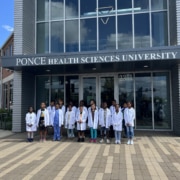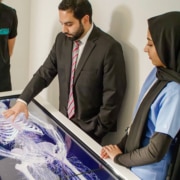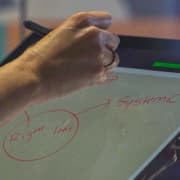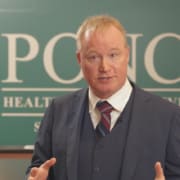Fox 2 News in St. Louis recently featured Ponce Health Sciences University ‘s new Mini Medical School Program on their evening news program.
Click here to watch the coverage from Fox 2.
The Mini Medical School Program was launched at PHSU in early September 2023. Together with the CPASS Foundation they invited twenty 4th grade students from Jennings School District and University City School District to come to the St. Louis campus for 10 sessions. During each sessions Mini Medical Students will learn about the wonders of health sciences and healthcare careers through lectures, experiments and other hands-on experiences.
Student program leaders include 2nd year medical students Noni Meadough, Miles Charles and John Rolfes. Faculty mentors are Dr. Mildred Olivier and Dr. Fabian Santiago. This Saturday enrichment program helps students develop critical thinking skills while making connections with mentors and role models. Mini Medical School is offered at no cost to students and PHSU hopes to expand to include more students from the metro East next year.
